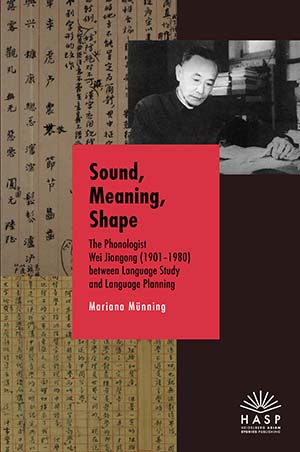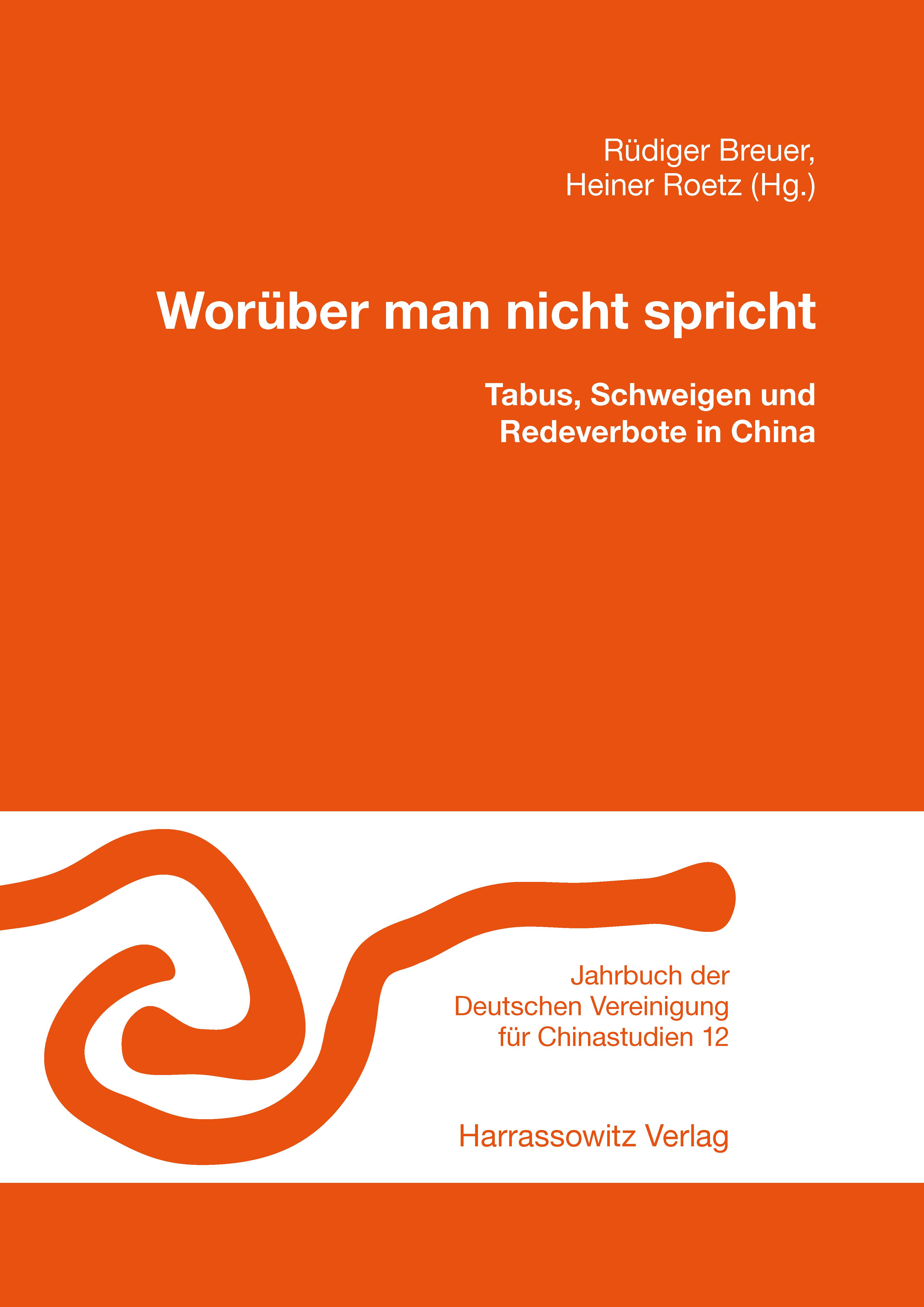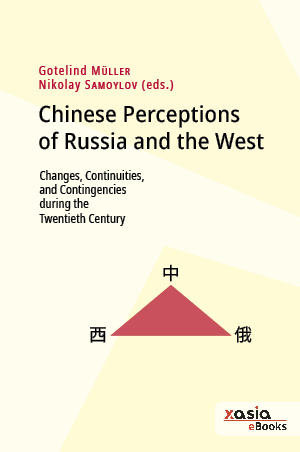Münning, Mariana
Sound, Meaning, Shape: The Phonologist Wei Jiangong (1901-1980) between Language Study and Language Planning
One of the leading proponents of the radical linguistic reforms in 20th century China, Wei Jiangong remains hardly known in the West. This book describes how Wei, who was rooted in traditional philology and conceptualizing language as a tool, helped to promulgate a standard language, led the compilation of the world’s most popular dictionary, and helped to drive script reform. While these measures were characterized as violent intervention in the Chinese language sphere, Wei’s careful negotiating of linguistic description and political prescription illustrates how they also may have been steps that helped to achieve linguistic self-determination.
Reviews
Yurou Zhong, in: China Quarterly (2023), 1-2
Worüber man nicht spricht: Tabus, Schweigen und Redeverbote in China
Self-imposed or socially or state-imposed speech taboos have always accompanied Chinese cultural history, as have attempts to break or circumvent them. Not only philosophy, historiography and literature have stood in this field of tension, but also moral and political action, which is still confronted with speech taboos today.
Worüber man nicht spricht gathers eleven contributions that span an arc from Chinese antiquity to the present day and illuminate the topic from various perspectives. They are examined: Cases of incest in ancient China; the problem of domestic violence in contemporary China; the originally strictly confidential "family teachings of Zhu Xi"; guidebook literature on China with its recommendations and prohibitions; the criticism of the republican writer and intellectual Lu Xun of mechanisms of power; the orientation of research on the 'Book of Changes' (Yijing); political factionalism in the one-party state of China; the linguist Wei Jian¬gong and his justifications of language policy measures; the political commitment of the filmmaker Shi Hui in the 1940s and the activities of the performance artist He Yunchang in the political and social context of the People's Republic of China. In this way, a multifaceted picture of taboos and prohibitions of speech in China's past and present is created.
Chinese Perceptions of Russia and the West: Changes, Continuities, and Contingencies during the Twentieth Century
This book aims at investigating changes and continuities in Chinese perceptions of Russia and the West during the 20th century, paying heed to the fact that the respective ascriptions and “frontlines” were historically contingent: who and what represented “Russia“ or “the West“ at a given time and at a given place? Was “Russia“ part of “the West“, or not? And if it was, in which regard? Which factors – foreign or indigenous – led to changes in Chinese perceptions and representations and why? With such questions in mind, this book was taking shape, growing out of a German-Russian project funded by the DFG-RFBR. The German-Russian research team from Heidelberg University and St. Petersburg State University worked on exploring the topic together with colleagues from mainland China and Taiwan, concentrating on three major areas: 1. The field of socialization via a look into normative descriptions of Russia and “the West“ in Chinese school textbooks which define images of the “other/s“ from childhood on; 2. The field of literature and Chinese fictional representations of Russia and “the West“ consumed by a Chinese reading public; 3. The field of visual and material manifestations which define images of the “other/s“ in their own medial way and make them accessible also to a public far from purely discursive levels and to those who do not actively look for them.










